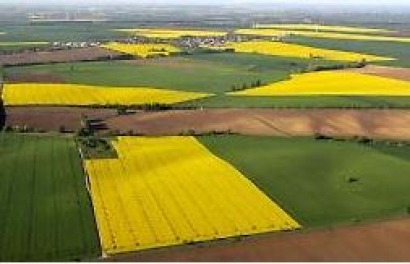
"I welcome the Environment Committee's decision to tackle the issue of greenhouse gas emissions resulting from indirect land use change by including them in the legislation, to cap first-generation agri-fuels and to promote advanced ones," said rapporteur Corinne Lepage after the vote.
"I nonetheless thing that the industry must be given time to adapt, and I shall propose a compromise to this end in plenary session" she added.
Her first-reading report was approved by 43 votes to 26, with one abstention. The legislative report will be put to a plenary vote in Strasbourg in September.
These measures aim to reduce greenhouse gas emissions due to the growing use of farmland to produce biofuel crops.
The committee said using farm land to produce biofuel crops reduces the area available for food crops. This adds to pressure to free up more land, e.g. through deforestation, to grow more food - a process known as indirect land use change (ILUC). But deforestation in itself increases greenhouse gas emissions, which may cancel out part of the beneficial effects of using biofuels.
As long ago as 2008, the European Parliament called for the ILUC factor to be taken into account in EU biofuel policy.
Under parliamentary rules, member states must ensure that renewable energy sources account for at least 10 percent of transport fuel use by 2020. The share of first-generation biofuels, produced from food and energy crops, must not exceed 5.5 percentof total energy consumption for transport purposes by 2020, say MEPs (the European Commission had proposed a 5 percent cap).
Advanced biofuels produced from other sources, such as seaweed or certain types of waste, must account for no less than 2 percent of consumption by 2020, MEPs said. However, this share should not be achieved at the cost of depriving other industries of raw materials, destabilising EU waste policy, overexploiting forests or reducing biodiversity, they added.
To boost the market share of electric vehicles, electricity produced from renewable sources should also account for 2 percent of total transport energy consumption by 2020, the committee said.
For additional information:

